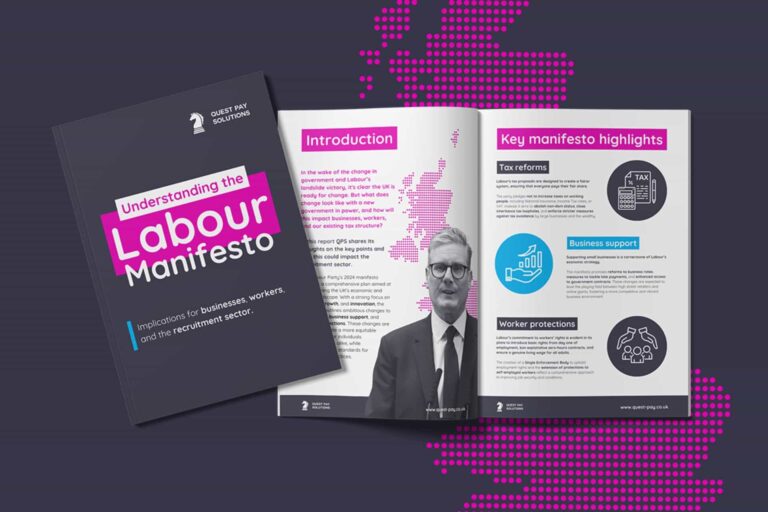For Mental Health Awareness week, we wanted to highlight the difficulties and unique challenges that working in the construction industry can pose to the mental health of construction workers.
As many of our clients and workers are a part of the industry, we’re aware that the nature of the job can be even more challenging for self-employed construction workers at times too. The combination of the demanding nature of the job, long hours, and the pressure to meet deadlines can take a toll on your well-being.
Self-employed construction workers often face additional stressors, such as financial uncertainty, increased workload, and limited access to support systems. Factors which can contribute to higher rates of anxiety and depression.
In this blog post, we will be looking at some of the shocking statistics around the prevalence of anxiety and depression among self-employed construction workers and providing some suggestions on how you can prioritise your mental health, as well as highlighting some UK charities that can provide you with further support and information.
The Prevalence of Anxiety and Depression among Self-Employed Construction Workers:

A 2022 study conducted by Mates in Mind and The Institute for Employment Studies (IES); ‘Supporting the mental health of self-employed construction workers’ found that:
- Recent data suggests that 97% of construction workers felt stressed at least once in the last year and that 26 per cent had considered taking their own lives in 2019.
- Office of National Statistics (ONS) data shows that more than 1,400 construction workers took their own lives between 2011 and 2015 but the number could be even higher.
- The rate of suicide in construction is more than three times the national average for men, with more than two construction workers taking their own life every working day.
- Almost half of the respondents to Mates in Mind’s survey reported that they found ‘talking about my mental health extremely difficult’ and almost 70% agreed that ‘that there is a stigma about mental health which stops people from talking about it’.
These shocking findings show that there is still a huge way to go in removing the stigma around talking about mental health in the construction industry, and that more needs to be done to improve the access and visibility of the support available to construction industry workers.
Prioritising your mental health at work:
Whilst opening up about your mental health struggles can be daunting, there is support out there that can help you, whether it be through speaking to someone you know, or anonymously.
We’ve also listed some proactive steps below that you can take to help prioritise your mental health and reduce stress as a construction worker.
Establish a supportive routine: Create a structured routine that includes regular breaks, exercise, and time for relaxation. Setting boundaries between work and personal life can help maintain a healthier work-life balance.

Connect with your peers: Reach out to fellow self-employed construction workers or join industry-specific support networks to connect with individuals facing similar challenges. Sharing experiences and seeking support can alleviate feelings of isolation.

Develop mindful techniques: Develop some techniques to help manage your stress levels, such as deep breathing exercises, listening to music, going for a walk or engaging in other hobbies and activities that bring you joy and relaxation.

Utilise available resources: Take advantage of mental health resources specifically tailored for workers in the construction industry and self-employed individuals. Online platforms, helplines, and mobile apps can provide immediate support and guidance.

UK charities offering mental health support for construction workers:
Several UK charities specialise in providing mental health support tailored to the needs of self-employed construction workers. Here are a few noteworthy organisations:
CALM (Campaign Against Living Miserably): A charity dedicated to preventing male suicide and providing support for mental health, including a helpline and online resources.
Mates in Mind: A charitable program that aims to raise awareness and provide support for mental health in the construction industry, including resources for self-employed workers.
Lighthouse Construction Industry Charity: Offers financial and emotional support to construction workers, including self-employed individuals and their families.
Mind: A national mental health charity that provides information, advice, and support to individuals experiencing mental health challenges.
Samaritans: A helpline available 24/7 for individuals in distress or experiencing suicidal thoughts.
Remember, reaching out for support is a sign of strength, not weakness. Organisations like CALM, Mates in Mind, Lighthouse Construction Industry Charity, Mind, and Samaritans are available to provide tailored support and resources whenever you need it.
Let’s work together to open up the conversation around mental wellbeing and create a construction industry that values the mental health of all workers. By raising awareness, promoting self-care, and utilising the support available, we can work together to help construction workers navigate the unique challenges they face.
If you or someone you know is a self-employed construction worker experiencing mental health concerns, don’t hesitate to reach out to the mentioned charities or seek professional assistance.
We are committed to creating and supporting a future where mental health support is readily available and integrated into the fabric of the construction industry, ensuring the well-being of all workers.
How is Quest Pay Solutions supporting Mental Health Awareness Week?
Alex Grant, our Managing Director, will be taking on the huge challenge of swimming Lake Windermere, the longest lake in England, in July. Alex is taking on the epic swim to support Campaign Against Living Miserably (CALM), a charity that provides essential support to those struggling with their mental health, particularly those experiencing suicidal thoughts.

“At QPS & RFS, we believe in supporting causes close to our hearts and to the industries we serve. Sadly, suicide rates in the construction industry have risen for the fifth consecutive year. That's why we're backing CALM and their vital work in providing life-saving services, encouraging open conversations, and helping people reject living miserably.”
Alex Grant, Managing Director, Quest Pay Solutions
You can find out more about Alex’s challenge on his fundraising page here.


